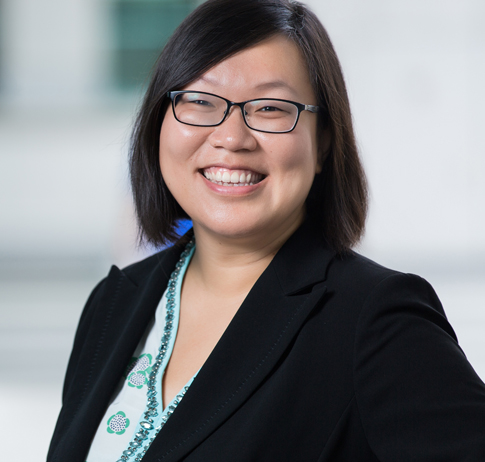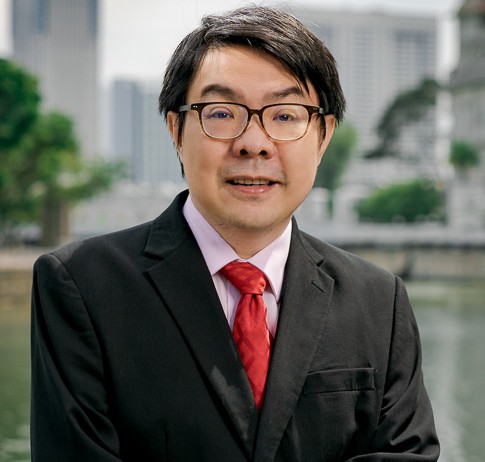The Ministry of Finance (‘MOF’) announced that, with effect from 9 May 2022, Additional Buyers’ Stamp Duties (‘ABSD’) at 35% will apply when Singapore residential properties are agreed to be sold to, transferred to, or declared to be held on, a living trust (i.e. an inter vivos trust) (‘ABSD (Trust)’).
ABSD (Trust) remission may, however, be claimed by way of a refund where the sale of residential property is to a trustee holding on trust for one or more identifiable individual beneficiaries[i] only (whether or not the sale is also made to another person).
The amount of refund is computed based on the difference between the ABSD (Trust) rate of 35% and the ABSD rate corresponding to the profile of the beneficial owner with the highest applicable ABSD rate.
By way of background, ABSD is imposed under the Stamp Duties Act 1939 (‘SDA’) on an agreement for sale, or transfer, conveyance or assignment on sale, of residential properties, with the ABSD rates varying depending on the profile of the transferee, i.e. whether they are individuals or entities, their nationality or Singapore permanent residency (‘PR’) status and also the number of Singapore residential property(ies) they already hold (if any). ABSD is chargeable over and above normal buyer’s stamp duties (‘BSD’) which is chargeable at a rate of up to 4%[ii] on purchases of residential properties. A summary of the total stamp duty (i.e. BSD + ABSD) a buyer has to pay in different scenarios is set out below for easy reference. Row 9 of the summary table highlights the new ABSD (Trust) that has just been introduced by the Singapore Government.
Total Buyer’s Stamp Duty (BSD + ABSD) Chargeable for Singapore Residential Property Transactions (with effect from 9 May 2022)
MOF explained in its press release the motivation for introducing ABSD (Trust) as follows:
“2. Today, when a residential property is transferred into a living trust, Buyer’s Stamp Duty (BSD) is payable. ABSD may also be payable, depending on the profile of the beneficial owner(s) of the residential property transferred into the trust.
3. Where the living trust is structured such that there is no identifiable beneficial owner at the time when the residential property is transferred into the trust, ABSD currently does not apply.
4. Arising from its periodic policy review, the Government will introduce ABSD (Trust) at 35%, to address and close this gap.”
The Inland Revenue Authority of Singapore (‘IRAS’) also stated that the objective of the ABSD (Trust) remission is to equalise the ABSD treatment for transfers of residential properties, whether a trust is involved or not.
With the new tax change, ABSD (Trust) at the rate of 35% must be paid upfront, and an application for the refund may then be made to IRAS within six (6) months after the date of execution of the instrument.
For large property transactions, the ABSD (Trust) can therefore be quite significant. The requirement to pay upfront and then seek a refund could create a cash flow issue and add to the financing costs and burden on a buyer who is borrowing to finance the acquisition. At present, it remains to be seen how long the IRAS will take to consider and approve a refund after receiving the application.
Note that ABSD (Trust) is only applicable for instruments executed on or after 9 May 2022, and it does not operate retrospectively. As such, if a transfer to the trustee of a discretionary trust set up during the lifetime of a settlor with no identifiable beneficial owner had already been made prior to 9 May 2022, such earlier transfer is not subject to the existing ABSD or the new ABSD (Trust). However, where a subsequent action is taken by the trustee to appoint assets to an identifiable beneficiary or to distribute assets to any identifiable beneficiary at a later stage, a question which might arise is whether IRAS could regard any document(s) involved at that later stage as a stampable instrument. It may be possible to avoid this outcome, but specific advice should be sought on the facts.
The new ABSD (Trust) does not apply to trusts (i.e. testamentary trusts) created by wills.
Amongst the other clarifications made / examples given by IRAS in respect of the ABSD (Trust) are the following:
Property count:
Confirming that the residential property transferred into the trust will be added to the property count of any identifiable beneficial owner of that property, regardless of whether there is a remission of ABSD (Trust). Hence, if the sole beneficial owner of the trust already owns one property in his personal name, the additional property transferred into the trust shall be counted as his 2nd property and the ABSD rate chargeable (which then determines the amount that can be claimed as refund) shall be computed on that basis. Similarly, the residential property transferred into the trust will be added to the property count of any identifiable beneficial owner of that property, regardless of whether there is a remission of ABSD (Trust).
Example of trust with interest subject to condition:
Where a parent had executed a trust to declare that he/she shall hold a condominium unit on trust for children A and B, where A beneficially owns 50% share, but B is only entitled to his 50% share upon fulfilment of a condition (e.g. upon graduation from university), the trustee will not be eligible for remission of ABSD (Trust), as one of the conditions for remission is that the beneficial owners of the trust property consist of identifiable individual beneficiaries only. As B’s interest in the property is contingent on the fulfilment of a condition (e.g. his graduation from university), B is not an identifiable individual beneficiary. Hence this remission condition is not met.
Example of trust with deferred beneficial ownership upon turning 21
Where a parent executes a trust to declare that he/she holds a condominum unit on trust for a minor child whose interest beneficially vests at the age of 21, remission is not available as deferred beneficial ownership that would only vest in the future will not meet the remission conditions.
Additional Conveyance Duty (Trust)
On 9 May 2022, the Government also introduced the Stamp Duties (Amendment) Bill 2022. The Bill introduced (a) an Additional Conveyance Duty for Trust (‘ACD (Trust)’), and (b) a new stamp duty treatment for renunciations of interest in the residential property held on trust.
Similar to the position for ABSD (Trust), ACD (Trust) will apply to instruments executed on or after 10 May 2022 where the significant ownership threshold has been crossed but there is no identifiable beneficial owner of such equity interests at the time. In determining whether the threshold for significant ownership is reached for a trust with no identifiable beneficial owners, the legislation would look at the equity interests that the trustee holds for the trust and those held by his associates.
When interest in a residential property held on trust is renounced by a beneficial owner, liability for BSD and, where applicable, ABSD and Seller’s Stamp Duty (‘SSD’), may arise if (a) a residential property comes under a living trust on or after 10 May 2022; (b) the beneficial owners of the residential property are identified at the time of transfer; and ( c ) a beneficial owner of that property renounces his interest in the property on or after 10 May 2022.
Other observations
Updating the ABSD regime aligns with the Singapore Government’s policy of taxing wealth associated with real estate. It follows previous moves in December 2021 to increase the ABSD rate, and also the increase in property tax rates in Budget 2022.
Structuring the use of trusts to hold real estate, may depending on the circumstances, have its merits from a long-term succession planning and inter-generational wealth preservation perspective. On the other hand, trusts are also more complex holding structures that require a lot of care and thought. Other than considerations from a tax and stamp duties perspective, it is also important to consider the following:
a. It is paramount that the substance of the trust be respected. This would include understanding and respecting the rights of the beneficiaries, with the trustees upholding their fiduciary responsibilities under the trust in addition to administering the trust. For example, rental income received in respect of a property held under a trust must be properly accounted for by the trustee and must not be co-mingled with the trustee’s personal funds. Where a trust’s beneficiary of capacity has a fixed or vested interest in the real estate, the beneficiary’s consensus on how the property should be dealt with must be sought.
b. There are regulatory restrictions in respect of trusts for real estate: for example, the Housing Development Act 1959 stipulates that no trust in respect of a flat sold under the said Act can be created without the prior written approval of the Housing Development Board (‘HDB’), and every trust which purports to be created in respect of such flat without the prior written approval of the HDB is void. Separately, in land-scarce Singapore, landed residential properties are broadly reserved only for Singapore citizens: the Residential Property Act 1976 (‘RPA’) stipulates that a person must not create any trust for sale in respect of any restricted residential property or any estate or interest therein in favour of any foreign person. Furthermore, the RPA specifically prohibits a Singapore citizen from purchasing or acquiring restricted residential property as a nominee of any foreign person with the intention that the citizen is to hold it in trust for that foreign person. In fact, the authorities have charged offenders for acting as a nominee for a foreign national[9] and a person has been charged with buying three semi-detached properties for three foreign friends while they are still foreigners[10]. These prosecutions carry the signal that the government authorities regard the unlawful holding of restricted residential property very seriously.
As this is just an update note, it has been prepared for brevity for the ease of reading. For further details or advice regarding your particular circumstances, please contact Stacy Choong, Chua Yee Hoong or Yeoh Lian Chuan.



